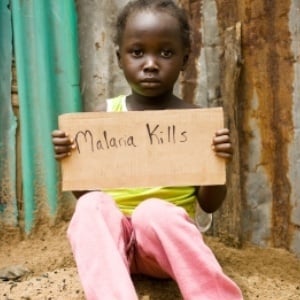
However, unlike the rest of Africa, South Africa has been hugely successful in the fight against malaria, mainly due to the Department of Health’s malaria prevention program. This program, which incorporated the World Health Organisation’s guidelines on the prevention of malaria, includes, amongst others, the use of controlled indoor spraying of insecticide.
Use of appropriate medication
Apart from such non-drug measures, this program also provides guidance on the use of appropriate medication to prevent malaria infection. Thanks to these endeavours, South Africa received the African Leaders Malaria Alliance (ALMA) award for excellence in the fight against malaria earlier this year.
According to their medical director, Dr Nic de Jongh, Cipla Medpro will continue to support the government in its efforts to eliminate the spread of malaria within South African borders by the year 2018. Cipla Medpro sells Mefliam, which is currently the number one-selling drug (in terms of number of packs) for the prevention of malaria in South Africa.
Cipla Medpro also has the government tender to supply Mefliam to state hospitals. By bringing quality and affordable antimalarial medicines within the reach of every South African, Cipla Medpro is living its credo that none shall be denied.
Reducing malaria by more than 75%
Cipla Medpro applauds the Department of Health’s success. According to the World Health Organisation’s World Malaria Report published in December 2012, South Africa is one of only eight countries in the African region that have managed to reduce malaria transmission by over 75 %. As such, the country is on track to reach its target of reducing the incidence of malaria by more than 75% in 2015.
“It is still important that people travelling to malaria-prone areas remember that the disease can be prevented by taking the appropriate prophylactic medication and following precautionary measures,” says Pete Vincent, medical advisor to Netcare Travel Clinics.
Lee Baker, member of the Malaria Advisory Group subcommittee (SCAT) and the Southern African Society of Travel Medicine (SASTM), says that malaria is normally only transmitted in three provinces in South Africa (Limpopo, Mpumalanga and KwaZulu-Natal) with transmission occurring predominantly between September and May.
However, the National Institute for Communicable Disease (NICD) this year reported two clusters of Odyssean malaria, that is, the acquisition of malaria in a non-endemic area by the bite of an imported mosquito. These clusters were in the Gauteng area.
Transmission of malaria through mosquitoes
“Mosquitos may be imported to a non-endemic area by a variety of transport routes such is in cars or minibuses from neighbouring malaria countries like Mozambique or Zimbabwe. Such mosquitoes may survive up to three weeks depending on environmental conditions, and if infected, have the potential to transmit malaria to humans. Malaria should always be considered in patients with unexplained fever even in the absence of a suggestive travel history,” advises Vincent.
Vincent says that common malaria symptoms develop 10 to 14 days after an infective bite, but may develop much later, and include flu-like symptoms (headache, fever, myalgia). Other symptoms include rigors, sweating, tiredness, abdominal pain, diarrhoea, loss of appetite, nausea and vomiting.
He also says that many myths currently exist around the disease:
Myth: Gin & tonic works just as well as any prophylaxis available.
Truth: Gin (or any other alcohol for that matter) does not provide any protection against the malaria parasite and prophylaxis should never be substituted with Gin or other alcohol.
Myth: Prophylaxis makes the disease undetectable.
Truth: Although Malaria prophylaxis is suppose to "kill" malaria parasites as they leave the liver, most modern laboratories can still detect the disease in the blood of a victim. In most cases a negative result with continued illness will warrant a second and third blood smear examination. In fact, the World Health Organisation (WHO) recommends 7 tests to completely eliminate the possibility of Malaria. If you have malaria it will be found, even while taking prophylaxis.
Myth: All prophylaxis have the same side effects.
Truth: Most travellers don't suffer any side effects from prophylaxis. Every antimalarial tablet has a different set of side effects and the best choice of tablet should be made in consultation with a travel clinic or an ‘informed’ Medical Practitioner.
“If travelling to a malaria-prone area, seek the advice of your doctor or local travel clinic beforehand and be sure to take the appropriate prophylactic medication, as prescribed by your doctor.
Also be sure to take precautions to avoid mosquito bites by regularly applying insect repellent to exposed skin, sleeping under a mosquito-proof net, and using coils or aerosol insecticides indoor. Be sure to know the signs and symptoms of malaria in the event that you contract the disease,” advises De Jongh.




 Publications
Publications
 Partners
Partners














